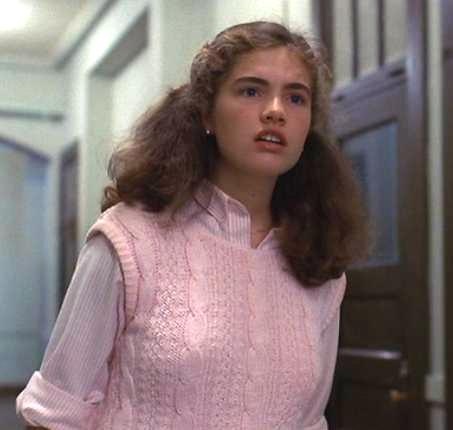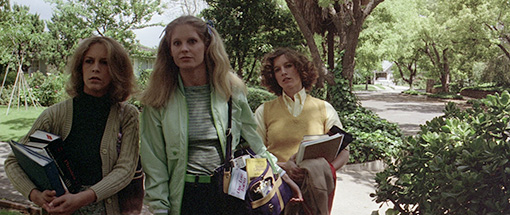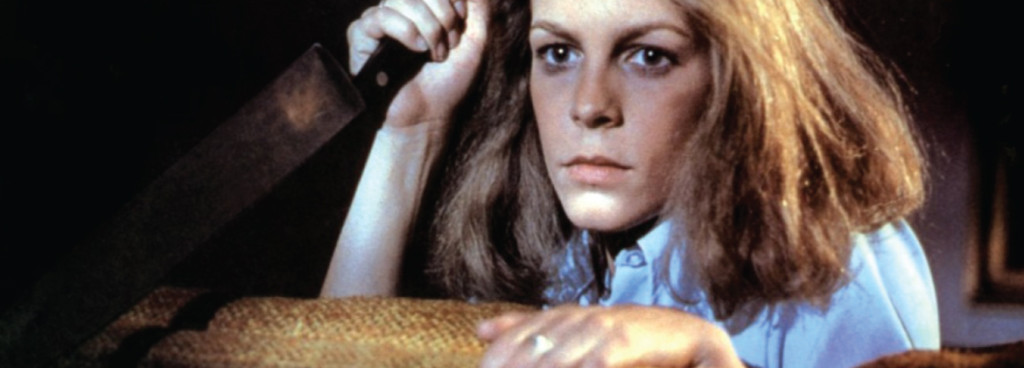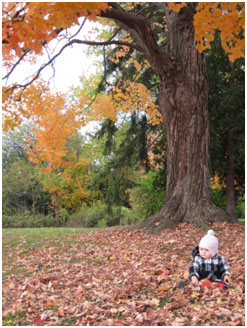I’m not strictly a “horror guy”. My writing tends toward psychological thrillers and drama, usually with a female protagonist. That said, I’m definitely a fan of the genre. As a fan of horror— fed and bred on the classics (Psycho, Night of the Living Dead, Halloween, Friday the 13th, Nightmare on Elm Street, etc.)— let me tell you, I don’t think we’re getting better at being scary. Yes, we have gore and shock and torture locked up. No need to leave anything to the imagination, we can put it all up there on screen. That said, I think the viewer’s mind is a playground we’ve abandoned in favour of eliminating the risk of being misunderstood. And a more egregious sin is how BAD we’ve become at developing iconic characters, good and bad. But I’ll come back to that.
There are a whole host of reasons we watch scary movies. Whether your “scary” is a masked killer stalking teenagers through the woods or Tom Cruise hanging from a suction cup off the world’s tallest building, fear is an emotion we benefit from. All the psychological and physiological reasons and results are just a google away, but let me sum up and say it’s not weird to like feeling fear, particularly that “safe” fear you get from a movie or book.
It’s no secret I’m a Stephen King fan. I admire his process. His stories, his monsters and heros are the hallmark of mastery. About why we like horror, he had this to say:
“The mythic horror movie, like the sick joke, has a dirty job to do. It deliberately appeals to all that is worst in us. It is morbidity unchained, our most base instincts let free, our nastiest fantasies realized . . . and it all happens, fittingly enough, in the dark. For those reasons, good liberals often shy away from horror films. For myself, I like to see the most aggressive of them – Dawn of the Dead, for instance – as lifting a trap door in the civilized forebrain and throwing a basket of raw meat to the hungry alligators swimming around in that subterranean river beneath.
Why bother? Because it keeps them from getting out, man. It keeps them down there and me up here. It was Lennon and McCartney who said that all you need is love, and I would agree with that.
As long as you keep the gators fed.”
Another thing I admire about King, the thing that holds a number of readers at bay, I imagine, is his detail. The rusted gate and the sound of the paint flaking away on a silent night. The colour of the barn and the materials of the seat-cover in a killer car. The protagonists lisp or nervous twitch.
Passing details, but to me maybe that’s EVERYTHING that separates the under-filling wafers from the sumptuous dinners.
Tonight I get to introduce a friend to the original Nightmare on Elm Street film. It’s a masterpiece, and I say that even when subtracting nostalgia from the equation. It added a little spice to the genre that really found its way with John Carpenters Hallowe’en, a low budget slasher flick that was surely never expected to be a hallmark of cinema. I’ll never forget Laurie Strode or Nancy Thompson. Why? Because they had complicated personalities, frustrating obstacles, and ultimately only their own moxie to help them confront evil.

These movies accidentally built a formula that gets horrifically (no pun intended) abused today: “Set ‘em up and knock ‘em down.”
Genre movies always use archetypes, especially when we must know characters quickly: The Jock, The Stoner, The Slut, The Brain, The Virgin, The Stupid Parents, The Stupider Police, and so on. What they don’t do much anymore is develop many of the characters – if they even develop ANY. And THAT my friends is a story-telling SIN.
Is it because we can’t focus that long on the details anymore? Is it a tragedy if no-one dies right off the bat? What if no-one died until the end? What if it’s creepy and mysterious, but not gory and slimy? Will it fail at the box office and therefore fail altogether?
I’ve always liked to take it slow in my films. That’s not a license to be boring, but I’m not going to be heart-broken if you just didn’t have the attention span for it. Art is an expression of the artist. Or in the case of a film, artists – writers and directors and actors and so-on. If you’re making a film, give me someone to root for. Something to figure out.

If you just have a gross idea and some fake blood and guts to chuck around, I’m probably not going to be interested. But slow it down, get under my skin, leave me freaked out… now we’re talking. Give me a target for empathy and you’ve got me hook, line and sinker.
Filmmakers, I implore you: make your characters REAL! That doesn’t mean they can’t be superheroes or villains or even simple archetypes. Just give them breath. Put actors into the roles that can give flesh to the person you envision as you sit in the pale glow of your computer screen (or if you’re like me, as you drag pen and pencil across a ragged, coffee stained note-book.) Take a break from trying to math out the next big indie hit or gross-out gag. Give your characters a situation to deal with and see where they run to. I think the results will be spectacular.
Although I’ve YET to like one of his endings, I’m a big fan of how Ti West (House of the Devil, Innkeepers) gives us characters that really inhabit their world. Spielberg, Carpenter and Craven used to do that too.





No Comments